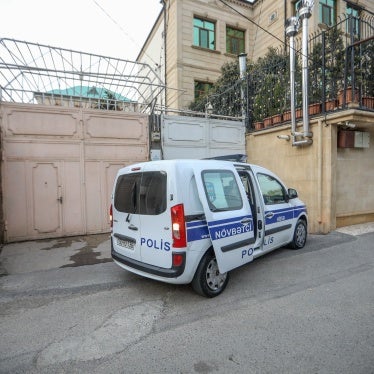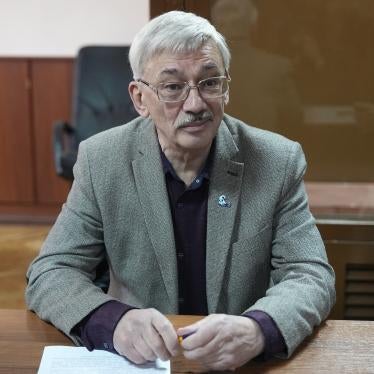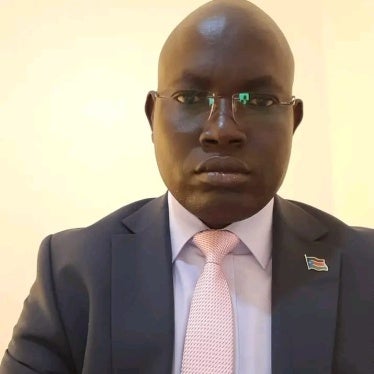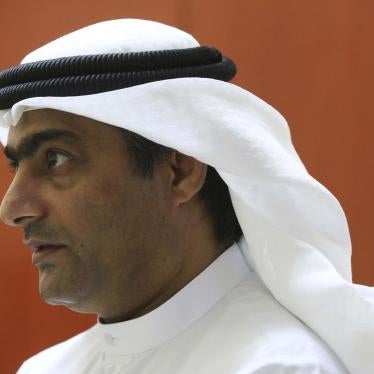The media remains far from free in Albania, Human Rights Watch said in a new report released today. Despite progress since the early 1990s, Human Rights Watch said journalists still risk harassment, physical assaults, and charges of criminal defamation, particularly when they report critically about the activities of public officials.
It takes a lot of courage to name names and do investigative journalism in Albania," said Elizabeth Andersen, executive director of the Europe and Central Asia Division of Human Rights Watch. "The common thread in the incidents we have documented is official retaliation for coverage of government abuse, corruption, and rights violations."
The sixty-page report, "The Cost of Speech: Violations of Media Freedoms in Albania," documents incidents of violence and intimidation of the press, as well as due process and free speech violations in six defamation trials. Human Rights Watch also reports that Albanian government officials misuse state advertising to put financial pressure on media outlets and interfere with their editorial freedom.
The report is based on Human Rights Watch interviews with dozens of journalists and media professionals, and analysis of scores of court documents, during a three-week investigation in Albania.
Human Rights Watch found that police officers and other officials are often responsible for arbitrary arrests, severe beatings, and serious intimidation of journalists and their families throughout Albania. The violence occurs with near complete impunity. Internal investigations by the police and public prosecution are either nonexistent or entirely inadequate.
Journalists based in the provinces outside the capital Tirana and those affiliated with the opposition media are especially vulnerable to violence and harassment, which grow more intense during election periods when the stakes are higher.
"Despite the publicity that these serious abuses have received, not a single person has been disciplined or prosecuted," said Andersen. "This failure to uphold the rule of law and free expression is a worrying sign for the future of press freedom in Albania."
Human Rights Watch also reports that civil and criminal defamation laws that fail to meet international standards are a growing concern for the Albanian media.
Defamation is a criminal offence under the Albanian Criminal Code, and the law gives government officials of all levels special protection from critical media coverage in what are known as "sacred cow" provisions. "These laws have it backwards," Andersen explained. "In a democracy, public officials must be prepared to withstand more criticism than an average citizen, not less."
Human Rights Watch researchers found that journalists facing defamation charges are routinely denied fair trials, often resulting in excessive and unsubstantiated financial sanctions against them. The report identifies numerous rights violations committed in six recent defamation cases.
"What is striking about these cases is the failure of the Albanian courts to follow the binding law of the European Convention on Human Rights," Andersen said. "This reveals a tendency among the judiciary not to take fundamental rights seriously."
The Human Rights Watch report also points to biased allocation of state advertising as a major problem for the press in Albania. Government advertising accounts for a disproportionately large share of total media advertising in Albania, and government officials abuse their financial leverage to put pressure on critical outlets. Human Rights Watch called for tighter regulation of advertising, transparent procedures, and independent monitoring to curb these abuses.
Human Rights Watch is concerned that, taken together, these various pressures have a serious, chilling effect on the Albanian media's ability to be a genuine public watchdog. If the press is deterred from reporting on human rights violations, alleged corruption or bad governance generally, the rights and well being of all Albanians are at peril.
To address its concerns, Human Rights Watch called on the Albanian government to:
End the tolerated harassment and intimidation of journalists by police and other officials, and ensure that any such incidents are investigated promptly and impartially;
Repeal criminal defamation laws, and reform civil defamation laws to bring them in line with international human rights standards;
Provide systematic training to judges on international human rights law and, in particular, the jurisprudence of the European Court of Human Rights; and
Take immediate steps to ensure the unbiased and apolitical allocation of state advertising and subsidies to the press.
Human Rights Watch urged the international community to promote media freedom in Albania, recommending that specialized organizations, such as the Council of Europe and the Organization for Security and Co-operation in Europe, monitor and assist the Albanian government in improving its human rights performance. Human Rights Watch also urged international financial institutions to promote media freedom as part of their efforts to curb corruption. In particular, Human Rights Watch said that the development banks should scrutinize advertising practices related to their investments








